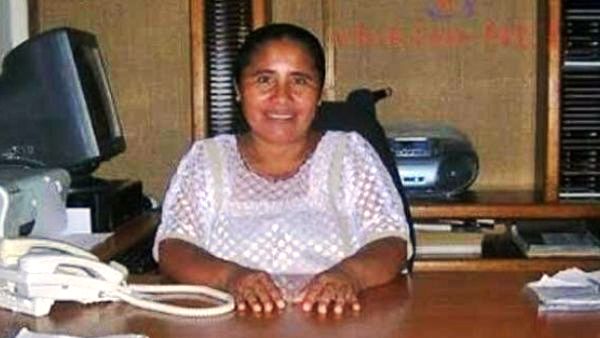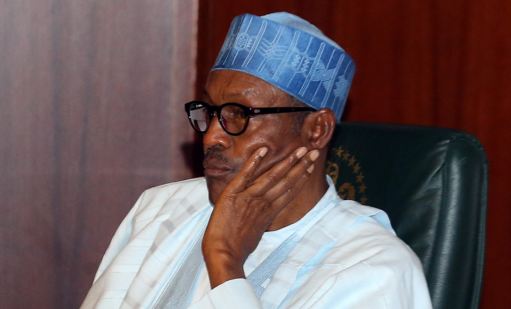The Socio-Economic Rights and Accountability Project, SERAP and the Nigerian Union of Journalists (NUJ) have sent an urgent appeal to Mr. David KAYE, UN Special Rapporteur on the promotion and protection of the right to freedom of opinion and expression, requesting him to “urgently intervene to prevail on the Federal Government, the Nigerian Army, police and several state governments to end growing clampdown, intimidation and harassment of journalists, online newspapers, and bloggers.”
The urgent appeal followed the arrest the recent arrest of Dapo Olorunyomi, publisher of the online newspaper Premium Times, and the judiciary correspondent, Evelyn Okakwu.
The appeal signed by Adetokunbo Mumuni SERAP executive director and Abdulwaheed Odusile President, Nigerian Union of Journalists expressed “concern concerned about the Nigeria’s government’s erosion of media freedom and continuing readiness of its agencies and state governments to limit the operation of online newspapers and bloggers in the country.”
The appeal reads in part: “We note that under international law criticism of public measures or comment on Government action, however strongly worded, would be consistent with the fundamental right to freedom of expression, and media freedom.”
“We believe that the crackdown and the increasingly restrictive media atmosphere and impermissible restrictions to freedom of expression has damaged Nigeria’s democratic credentials and violated its international human rights obligations. The crackdown has also impeded the ability of journalists, online newspapers, bloggers and the media in general to hold government authorities to account or scrutinize their activities.”
“The arbitrary arrest of Mr Dapo Olorunyomi, publisher of online newspaper Premium Times, and the judiciary correspondent of the online newspaper, Evelyn Okakwu would seem to mark an intensification of a crackdown on media freedom that has been going on for some time now”.
“The Army had accused the online newspaper of ‘unwarranted serial provocative, unauthorised, libellous and defamatory publications against the person of Lieutenant General T.Y Buratai, the Chief of Army Staff, Nigerian Army and Nigerian Army counter insurgency operations in the North East,’ and threatened to take action against the and its publisher.”
“We argue that while public officials are entitled to protection of their reputation, including protection against defamation, as individuals who have sought to play a role in public affairs they should tolerate a greater degree of scrutiny and criticism than ordinary citizens. This distinction serves the public interest by making it harder for those in positions of power to use the law to deter or penalize those who seek to expose official wrongdoing, and it facilitates public debate about issues of governance.”
“We further note that the UN Human Rights Committee, the independent expert body that monitors state compliance with the International Covenant on Civil and Political Rights in its General Comment No. 34 states that “the value placed by the Covenant upon uninhibited expression is particularly high. The mere fact that forms of expression are considered to be insulting to a public figure is not sufficient to justify the imposition of penalties. All public figures are legitimately subject to criticism and political opposition.”
“In addition, the Human Rights Committee has said that “defamation laws must be crafted with care to ensure that they do not serve, in practice, to stifle freedom of expression. State parties [such as Nigeria] should consider the decriminalization of defamation.” We therefore believe that criminal penalties infringe on peaceful expression and are always disproportionate punishments for any perceived reputational harm.”
“We note that the legal tool that has been repeatedly used to threaten, intimidate, harass and press politically motivated charges against journalists, online newspapers and bloggers is the obnoxious and unlawful Cybercrime Act of 2015 which was signed into law by former President Goodluck Jonathan in May of that year.”
“Cyber stalking, which falls under Section 24 of the act, carries a fine of up to 7 million naira (USD$22,000) and a maximum three-year jail term for anyone convicted of knowingly sending an online message that “he knows to be false, for the purpose of causing annoyance, inconvenience danger, obstruction, insult, injury, criminal intimidation, enmity, hatred, ill will or needless anxiety to another”.
“We further argue that the Cybercrime Act is vaguely worded, overly broad, and prone to misuse and have fact been repeatedly and arbitrarily used against journalists, online newspapers and bloggers, as the cases highlighted have shown. The use of the Cybercrime Act has created an environment of intolerance, with a chilling, inhibiting effect on freedom of thought and discussion.”
“We also argue argues that the Cybercrime Act is inconsistent with Nigeria’s international legal obligations, and undermines rather than strengthen efforts to prevent and combat corruption, and, because freedom of expression is an enabler of other rights, threaten to erode human rights protections more generally. The Cybercrime Act therefore impose limitations on expression that go beyond the restrictions that are permitted by international law and, in conflict with the Nigerian Constitution 1999 (as amended).”
“We note that the ability to practice journalism free from undue interference, to peacefully criticize government and its officials, and to express critical views is crucial to the fight against corruption, and the exercise and enjoyment of many other human rights. Freedom of opinion and expression is a cornerstone of a democratic society. It extends not only to “information” or “ideas” that are favourably received, but also to those that offend, shock or disturb.”
“We also note that Nigeria is a state party to the International Covenant on Civil and Political Rights (ICCPR) and the African Charter on Human and Peoples’ Rights, which guarantee the right to freedom of expression and impose legal obligations on states to protect freedom of expression and information. The Nigerian Constitution of 1999 (as amended) also protects freedom of expression, and includes language that permits for limitations on that right, which broadly tracks article provisions of the Covenant and Charter,” the appeal stated.


